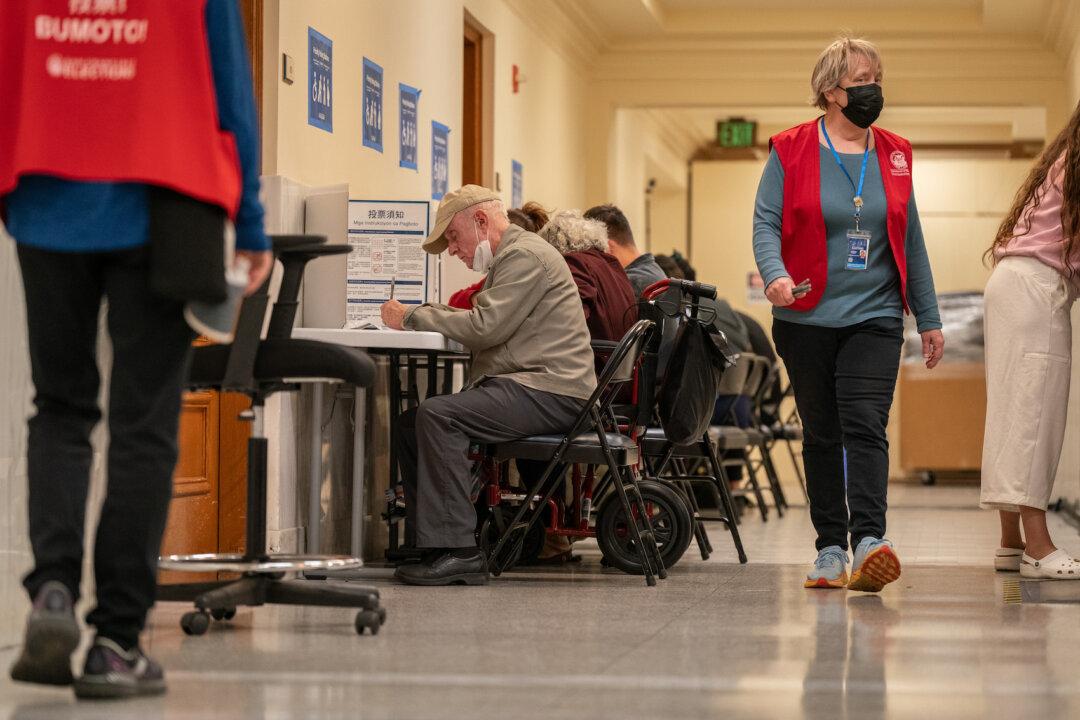California’s Proposition 36, a grassroots crime-fighting initiative, held a strong lead as early results came in on Nov. 5.
The measure to increase sentencing for some drug and theft crimes garnered more than 70 percent of votes as 56 percent of the state’s precincts reported returns, according to unofficial preliminary results from the Secretary of State’s office.





